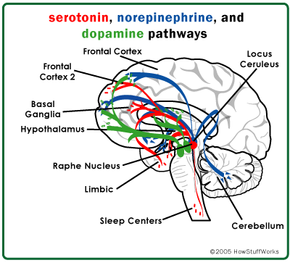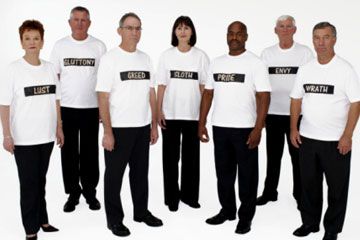There are a lot of chemicals racing around your brain and body when you're falling in love, as well as when you're engaged in a long-term commitment. Over the years, researchers have amassed an impressive array of evidence detailing the roles of various hormones, neurotransmitters, and more that play integral roles in our love-based relationships.
Two of those hormones, estrogen and testosterone, play a role in our sex drive. These are the two chemicals that drive lust or sexual desire. And while testosterone has historically been thought of as a "male" hormone, it's present in males and females and is responsible for boosting the libido in everyone, regardless of their biological sex.
There are a lot of chemicals racing around your brain and body when you're in love. Researchers are gradually learning more and more about the roles they play both when we are falling in love and when we're in long-term relationships. Of course, estrogen and testosterone play a role in sex drive. Without them, we might never venture into the "real love" arena.
That initial giddy feeling that comes with a new crush or potential love affair is often characterized by a racing heart, flushed skin and sweaty palms. Researchers say this is due to the dopamine, norepinephrine and phenylethylamine released by the body. Dopamine is thought to be the "pleasure chemical," producing a feeling of bliss. Norepinephrine is similar to adrenaline and produces the racing heart and excitement.
According to Helen Fisher, a well-known love researcher and an anthropologist at Rutgers University, together these two chemicals produce elation, intense energy, sleeplessness, craving, loss of appetite and focused attention. She also says, "The human body releases the cocktail of love rapture only when certain conditions are met and ... men more readily produce it than women, because of their more visual nature."
In 2013, Fisher presented research at the Being Human conference that indicated that several brain chemicals, including dopamine and testosterone, play a role in a person's drive toward romance, sex and other rewards. She suggested that the precise balance of these chemicals could shape a person's personality and influence the type of people they're attracted to. While people with "active" dopamine systems tended to be reward-driven and impulsive, curious, energetic and mentally flexible. These people appeared to be attracted to people similar to themselves. People with more active serotonin systems tended to be conscientious rule followers who also leaned toward similar-minded partners.
But two groups of people seemed to be drawn to their opposites: highly analytical and competitive testosterone-dominant people who were often attracted to the "high-estrogen and oxytocin" types who tended to be nurturing, empathic and introspective. And the attraction went both ways.
Researchers have also used are using functional magnetic resonance imaging (fMRI) to watch people's brains when they look at a photograph of their object of affection. According to Fisher, what they see in those scans during that "crazed, can't-think-of-anything-but stage of romance" — the attraction stage — is the biological drive to focus on one person. The scans showed increased blood flow in areas of the brain with high concentrations of receptors for dopamine — associated with states of euphoria, craving and addiction. High levels of dopamine are also associated with norepinephrine, which heightens attention, short-term memory, hyperactivity, sleeplessness and goal-oriented behavior. In other words, couples in this stage of love focus intently on the relationship and often on little else.
Another possible explanation for the intense focus and idealizing view that occurs in the attraction stage comes from researchers at University College London. They discovered that people in love have lower levels of serotonin and also that neural circuits associated with the way we assess others are suppressed. These lower serotonin levels are the same as those found in people with obsessive-compulsive disorders, possibly explaining why those in love "obsess" about their partner.










